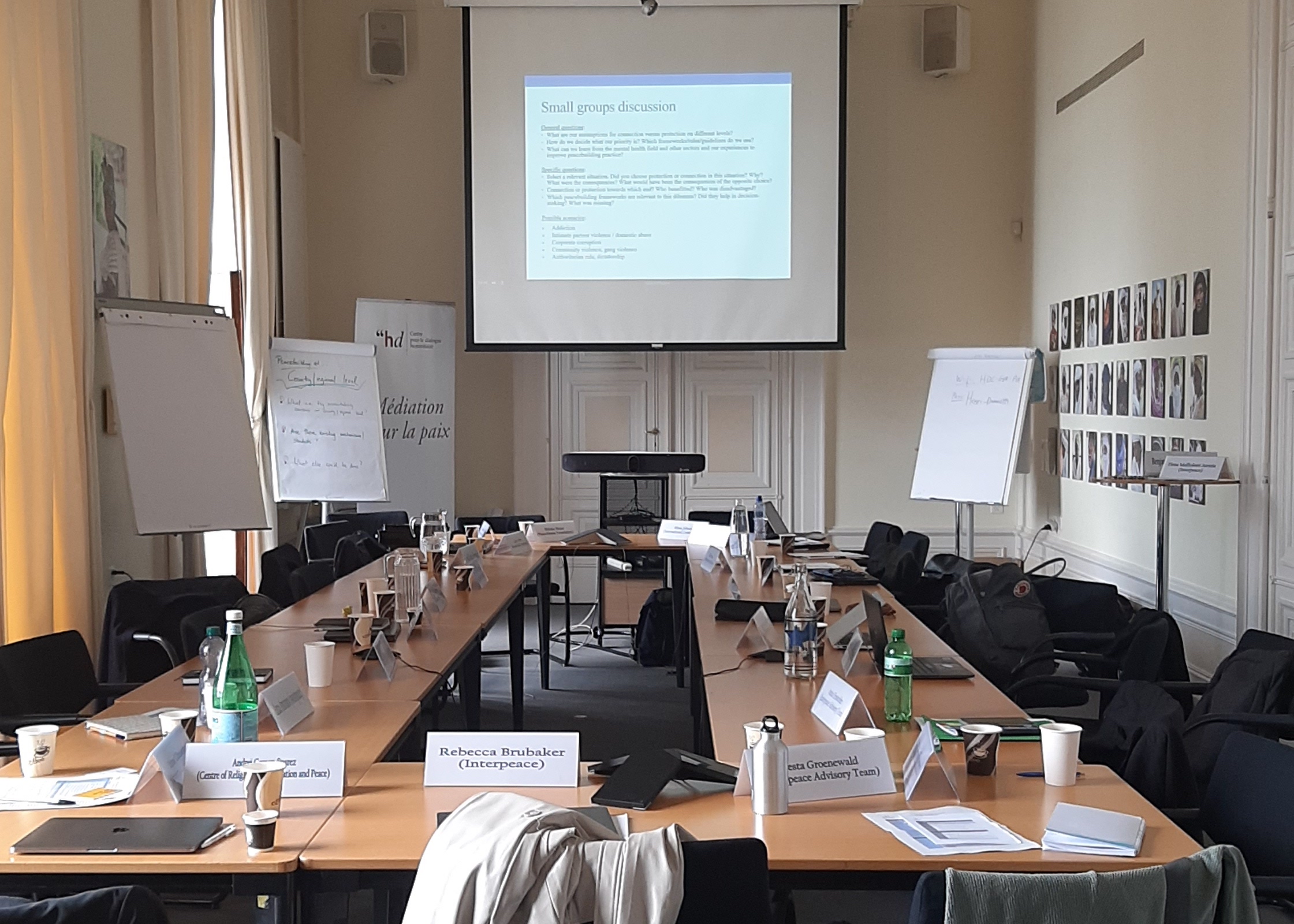Cross-sector collaboration to improve peacebuilding practices

Interpeace recently organised a Good Peacebuilding in Practice Workshop in Geneva, where representatives from the humanitarian, development, human rights, and mental health sectors participated in an effort to tackle the most pressing issues in our field. During this two-day workshop, Interpeace colleagues were joined by over 25 participants from diverse corners of the peacebuilding sector with the aim of helping each other improve as practitioners through an honest exchange of knowledge and reflections.
In recent years, peacebuilders have put much emphasis on working with the development and humanitarian sectors to operationalize the sustaining peace agenda and to enhance the understanding of the ‘P’ within the HDP Nexus debate. Therefore, it was an opportune time to turn the magnifying glass on our own sector and ask: how are we doing? And more specifically, what can we, as peacebuilders, learn from other sectors in order to continue to grow and improve as practitioners in the peacebuilding field. In her opening remarks, Dr. Rebecca Brubaker, Interpeace’s Director of Policy, Learning and Advisory Services, stated that the two main goals of the workshop were “to have a frank and proactive intra-sector conversation about key debates in our field, and for this learning discussion to be directly informed by other sectors.”
The workshop was organized around three main themes. The first session centered on Accountability in Peacebuilding, paying particular focus to the ethical question of how peacebuilders are held to account by or on behalf of those most affected by their actions. Participants engaged with colleagues from the humanitarian sector on the accountability mechanisms and standards they have implemented, and discussed the different ways in which international and local actors, as well as peacebuilders could enhance accountability in peacebuilding. The second session focused on Balancing protection with connection needs, where participants from the psychological field used scenarios and models from their own practice and experience to trigger a discussion on how to balance connection with protection needs in peacebuilding. The third session looked at how principles of Neutrality and Impartiality inform peacebuilding practice. While principles are firmly established in the humanitarian and human rights sectors (albeit in different ways), peacebuilders often take a more pragmatic, case by case approach, and discussions centered on how different actors in the room consider impartiality and neutrality in resolving dilemmas that emerge in the field.
“It’s the first time I’ve seen peacebuilders and people coming from other sectors discussing and talking about the different principles and perspectives on impartiality and neutrality.” Charles Ndayiziga – Great Lakes Regional Representative, Interpeace
Participants expressed their enthusiasm for spending this time together to discuss and exchange ideas and experiences, as a way to strengthen and improve each other’s work. Interpeace hopes to continue the collaborative exploration of these topics in the future.
